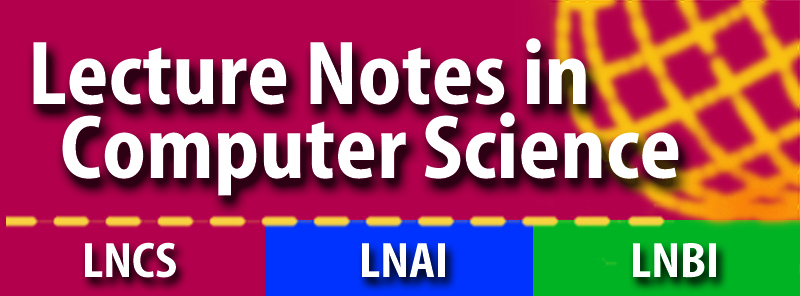Organization
Invited Talks
Call for Papers
Submission
Special sessions
Previous MACIS conf.
Accepted Submissions
Program
Registration
Visa & Travel
Accommodation
Practical Info
Some Places worth visiting
Post proceedings will
appear in LNCS


Call for Papers
|
|
|
The submission Web site for MACIS 2015 is
https://easychair.org/conferences/?conf=macis2015.
All accepted SHORT or REGULAR papers will appear in a post-conference proceedings published by LNCS. In addition, REGULAR papers have the opportunity to be considered for post-conference special issues of the journal Mathematics in Computer Science (MCS http://www.cc4cm.org/mcs) by Birkhauser/Springer. SubmissionsOriginal research papers in English, including experimental work and work-in-progress are welcome. All papers must be categorized as SHORT or REGULAR, and indicate a Special Session (SS0, SS1, SS2, etc). When there are no obvious or relevant Special Sessions, it is always safe to use the generic "SS0". Paper titles must be tagged as illustrated here: "SHORT-SS1: ...title..." -or- "REGULAR-SS0: ...title..." The 2-part tag is in the same line as the title. REGULAR papers are up to 15 pages, and SHORT papers are up to 5 pages, including of references. The Special Session tag is mainly a hint to the PC, and non-binding on the author or on the PC. Submit via EasyChair:
Please send your submission to: There is an option to convert from SHORT papers to REGULAR papers: simply make a new submission for your REGULAR paper before the deadline, keeping the same title but with a new tag. At least one author of each accepted submission must register at MACIS 2015. Decision on the SHORT paper will be made on a rolling basis, normally about 10-15 days after submission. The title and abstract of accepted papers will appear on our Website shortly after acceptance, and published in the pre-conference proceedings.
MACIS 2015 Topics(non-exclusive list)Foundation of Algorithms in Mathematics, Engineering & Scientific Computation quantifier elimination and decision procedures; global optimization; differential equations; numeric, symbolic, interval and hybrid solution techniques; satisfiability modulo theories; combinations of logics and deductive engines; applications, especially in systems analysis and formal verification; solving (parametric) polynomial systems
Data Modeling and Analysis
Information Security and Cryptography
Important Dates (NEW!)
Submission opens : Apr 21, 2015 |
